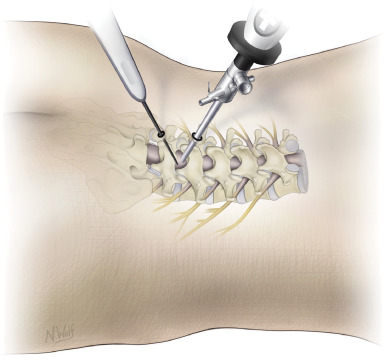Endoscopy in spine surgery is a minimally invasive technique that uses a small camera and specialized instruments to treat spinal conditions. When working near the spinous process—the bony projection felt at the back of the spine—surgeons can create a small pathway between or around these structures to reach the deeper areas of the spine, such as the discs, nerves, and spinal canal.
This approach helps preserve more of the surrounding bone and muscle compared to traditional open surgery. By minimizing tissue disruption, endoscopic procedures can reduce pain, lower the risk of complications, and allow patients to return to normal activities more quickly.


